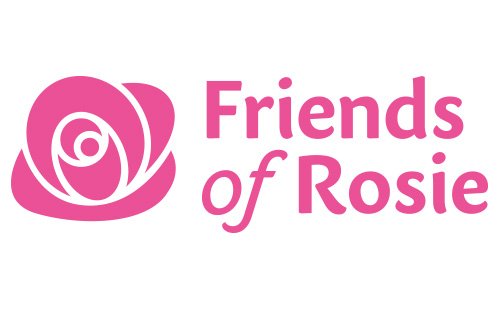Our research strategy – why we fund research into childhood cancer
Our aims, objectives and priorities
- Friends of Rosie’s research strategy aims focus on providing “pump-priming” funds of one or two years to research and clinical investigators who are addressing paediatric cancers. The goal is to provide funds that will lever major longer-term funding from established funders (e.g. CRUK, Leukemia UK, MRC, ESRC etc.). Some priority is given to promising young investigators at the beginning of their careers. Generally funding is directed to support post-doctoral research fellows for one or a maximum of two years.
- Our research strategy objectives are to fill a gap of funding where solid preliminary results of novel approaches are required in grant applications to lever major and longer term funding. If possible, publication of this work should also be a goal.
- Priorities are defined by annual consultation with a Scientific Advisory Board (see below).
The unique role of the charity in the research landscape and how it adds value
- In the geographical area that it functions (the North West of England) there are six universities, two of which are in the major “Russell Group”, with associated medical schools and childrens’ hospitals. There is a major UK cancer research institute in Manchester. All are competing for fiercely competitive funding to support innovative research ideas that could improve the lives of children with cancer and potentially extend their survival. Friends of Rosie is unique in its focus on paediatric cancer and it has the ability to substantially fund pump-priming grants. FOR funding “levers” national and international peer–reviewed funds into an important UK hub of cancer research, so increasing the quality of research and medicine in the North West (a population of almost eight million people).
What research/scientific policy issues have been identified and why
- The types of research, scientific and medical areas the charity intends to support in paediatric oncology are determined by an independent Friends of Rosie UK Scientific and medical Advisory Board (SAB). This is constituted of three MD or MD/PhD paediatric oncologists working outside of the geographical area where grants are awarded. Funding priorities determined in 2020/21 are detailed in Annex 1 – Funding Priorities 2020/21. The SAB is chaired by an Emeritus Professor (PhD, DSc) from outside the region. All grant applications are refereed by two independent experts chosen by the SAB. These experts are either national or international (e.g. USA). Grants are scored and prioritized according to fixed criteria – Annex 2 – Score Sheet).
- Policy issues highlighted the need to fund innovative projects at the stage where preliminary results require confirmation and consolidation in order that they could attract substantial and longer-term national or international funding (“pump-priming”) through grant applications. A gap in funding to obtain solid preliminary results to support high quality grant applications was identified by Friends of Rosie and is particularly relevant to early career scientists and clinicians.
- Although “strategic fit” (see Annex 1) plays an important role in determining funding direction, the SAB is sensitive, in awarding funds, to the need to support innovative areas where risk may be higher. That risk is offset by the track record of the applicant.
How the charity plans to fund research – the types of grants
- Funds of up to (currently) £70k are available for one year as part of our research strategy. Exceptional renewal for a second year, after an approved first year report, requires approval by the SAB. The funds cover the employment, through the University or Hospital, of suitably qualified staff to ensure the proper realization of the proposed work. Generally, these funds support a post-doctoral fellow or a research assistant. Provision is made for consumable costs. A limited travel budget to conferences may be requested. Small items of equipment may be considered for funding. Major capital expenditure on equipment is not within the scope of Friend of Rosie funding.
- We are open to partnerships with other charities or research funders provided they share our objectives.
Who the charity will fund
- Friends of Rosie funds academic researchers and clinicians with tenure or fellowships of five years or longer, who already have high quality records of scientific or clinical research. Funding is in universities, research institutes and teaching hospitals.
- Qualifications are: PhDs, MD-PhDs or MDs
Where the charity will fund research
- FOR funds research in universities, hospitals and research institutions with substantial research infrastructure. The charity has strong geographical links with the North West of England, including the University of Manchester and its associated hospitals, Salford University, Manchester Metropolitan University, Liverpool University and its associated hospitals, Liverpool John Moore’s University, Lancaster University and associated hospitals. However, grant awards are not restricted to this region or these institutions.
- FOR funds applications primarily from the North West of England, where the charity is based; however, applications from any part of the UK are welcome and eligible for consideration.
When the grant will be awarded
- Awards are normally made on an annual basis, according to available funds. An annual call for funds is targeted to the institutions named above. Grant applications are received, assessed by the SAB, which suggests appropriate evaluation (see Annex 2) by external referees. The SAB reviews external referee reports and decides on priorities for funding. This process takes a maximum time of 12 weeks. Anonymous criticism by external referees of applications for funding is fed back to all applicants, successful or not.
- Funded applicants are followed after the termination of their Friends of Rosie grant to determine the impact of “pump-priming” on their subsequent grant funding and publication record. Normally, second awards to the same individual are unusual and must be for a novel project.
- The SAB reviews this research strategy in terms of scientific priorities and medical needs (Annex 1) every three years. However, it is unlikely that the principle of funding “pump-priming” grants will evolve radically in the future.




